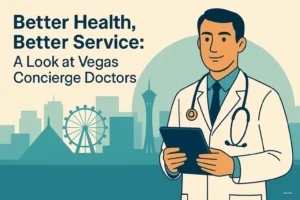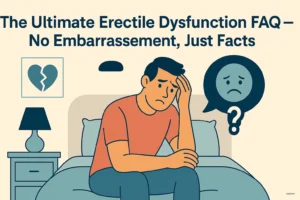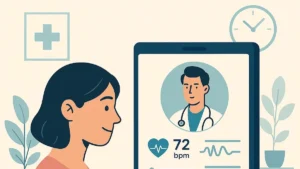
Depression is a serious mental health condition affecting millions of adults worldwide. It can become debilitating and even take a person’s life if not addressed properly. Knowing how to recognize the signs of depression is critical to preventing it from becoming more severe or harmful.
If you suspect that you or someone close to you might be struggling with depression, recognizing these warning signs could be instrumental in getting them help before any long-term damage occurs.
This blog post will explore some of the common symptoms associated with depression so that those affected by the disorder can get on track for recovery as soon as possible.
What Is Depression?
Depression is a common mental health disorder characterized by persistent sadness, emptiness, and worthlessness. Biological or psychological factors, such as genetics, chemical imbalances in the brain, or stressful life events, can cause it.
Depression frequently co-occurs with other mental health conditions, such as anxiety disorders and substance abuse problems. It is important to note that there are different types of depression, including major depression, bipolar disorder depression, and postpartum depression.
A mental health practitioner, such as a psychiatrist or psychologist, can help diagnose depression and recommend appropriate depression treatments.
Signs of Depression
Depression impacts people differently, but some common signs may indicate depression in an individual:
- Loss of interest in once enjoyable activities
- Changes in sleep patterns, such as sleeping more than usual or difficulty falling asleep
- Unexplained physical problems, such as muscle pain and headaches
- Low energy and fatigue, even after resting
- Appetite changes, either an increase or decrease in food intake
- Feelings of worthlessness or guilt
- Thoughts of death or suicide
- Difficulty concentrating, remembering details, and making decisions
- Restlessness and irritability
- Diminished sex drive
Signs and symptoms of depression can vary depending on the type. For example, signs of bipolar depression may include periods of depression alternating with episodes of mania. Depression can worsen without treatment and lead to self-harm or suicide if left untreated. It is essential to recognize the symptoms of depression and get help as soon as possible.
Causes of Depression
Various factors, such as genetics, certain medical conditions, or traumatic life events, can cause this condition. Some of the most common causes triggering depression include the following:
- Substance abuse: Drugs and alcohol can trigger depression in some individuals.
- Family history: Depression can be hereditary and run in families.
- Certain medical conditions: Hormonal imbalances or a thyroid disorder can result in debilitating depression.
- Traumatic life events: Stressful life events, such as the death of a loved one or significant life changes, can trigger depression.
- Medications: Certain medications, such as steroids or sleeping pills, can cause depression.
Other factors, such as social isolation, financial issues, and lack of physical activity, can also contribute to depression.
Depression Treatments
Depression is an incredibly challenging experience. Unfortunately, it can be difficult to manage without the proper medical care. This is why seeking a mental health specialist for treatment options is essential.
The types of treatments that healthcare professionals may recommend depend on the severity of depression and how long it has been present in a person’s life. Below are some common depression treatments.
Medications
Medications have become an invaluable tool in the management of depression. Antidepressants are frequently prescribed to treat depression, including selective serotonin reuptake inhibitors (SSRIs), serotonin and norepinephrine reuptake inhibitors (SNRIs), and tricyclic antidepressants.
These medications can drastically reduce symptoms and enable individuals with depression to living more fulfilling lives.
Supplements:
- Omega-3 Fatty Acids: These are essential fats that our body needs to function properly. Omega-3s can be found in fatty fish such as salmon, mackerel, and sardines, as well as in supplements such as fish oil capsules.
- Vitamin D: Vitamin D is important for bone health, but some studies have suggested that it may also have a role in regulating mood. Vitamin D is naturally produced by the body when exposed to sunlight, but it can also be found in some foods or taken as a supplement.
- B-complex vitamins: The B vitamins, including B6, B12, and folic acid, are important for many bodily functions, including brain function. Some research suggests that low levels of these vitamins may be linked to depression.
- SAM-e (S-adenosyl-L-methionine): This is a naturally occurring compound in the body that plays a role in many bodily functions, including mood regulation. Some studies have suggested that taking SAM-e as a supplement may help improve symptoms of depression.
Therapy
Therapy is often recommended for managing depression over the long term. It involves engaging in a dialogue with a trained individual who can help to unravel entrenched behaviors and eliminate negative emotions. Typical forms of therapy that may be beneficial include cognitive-behavioral therapy, psychotherapy, and interpersonal therapies.
Interpersonal therapies focus on improving the current relationships of individuals suffering from depression. Cognitive-behavioral therapy reinforces positive behavior patterns while transitioning from negative thoughts and actions. Similarly, psychotherapy will look at ways to resolve suppressed emotions or traumas that result in depressive symptoms.
Lifestyle Changes
Sometimes, therapy and medications aren’t enough to alleviate depression symptoms. This is why lifestyle changes can be so helpful in managing depression over the long term.
For example, getting more physical activity, eating a healthy diet, and connecting with supportive friends or family members can help reduce depression symptoms.
Closing Thoughts
Depression can be a serious obstacle to overcome, but it can be manageable with the right help and guidance. If you or someone you know are experiencing any of the symptoms discussed in this blog post, it is vital to reach out for help as soon as possible to get on the path to early recovery and improved mental health.
Seeking counseling services, therapy, or treatment plans tailored to your individual needs could be instrumental in overcoming depression and allowing you to lead a more fulfilling life.
Remember that no matter how difficult it may seem, there is always hope — so take that first step today and seek help.
It can be incredibly difficult to take the first step in seeking help for depression but know that reaching out for professional support is a powerful act of self-care and a courageous step towards healing. Remember, you are not alone in this journey and there is no shame in seeking help.
So take the first step, and know that you have the strength, resilience, and support to overcome any obstacle that comes your way.
Please make an appointment to see our depression experts in Las Vegas.








